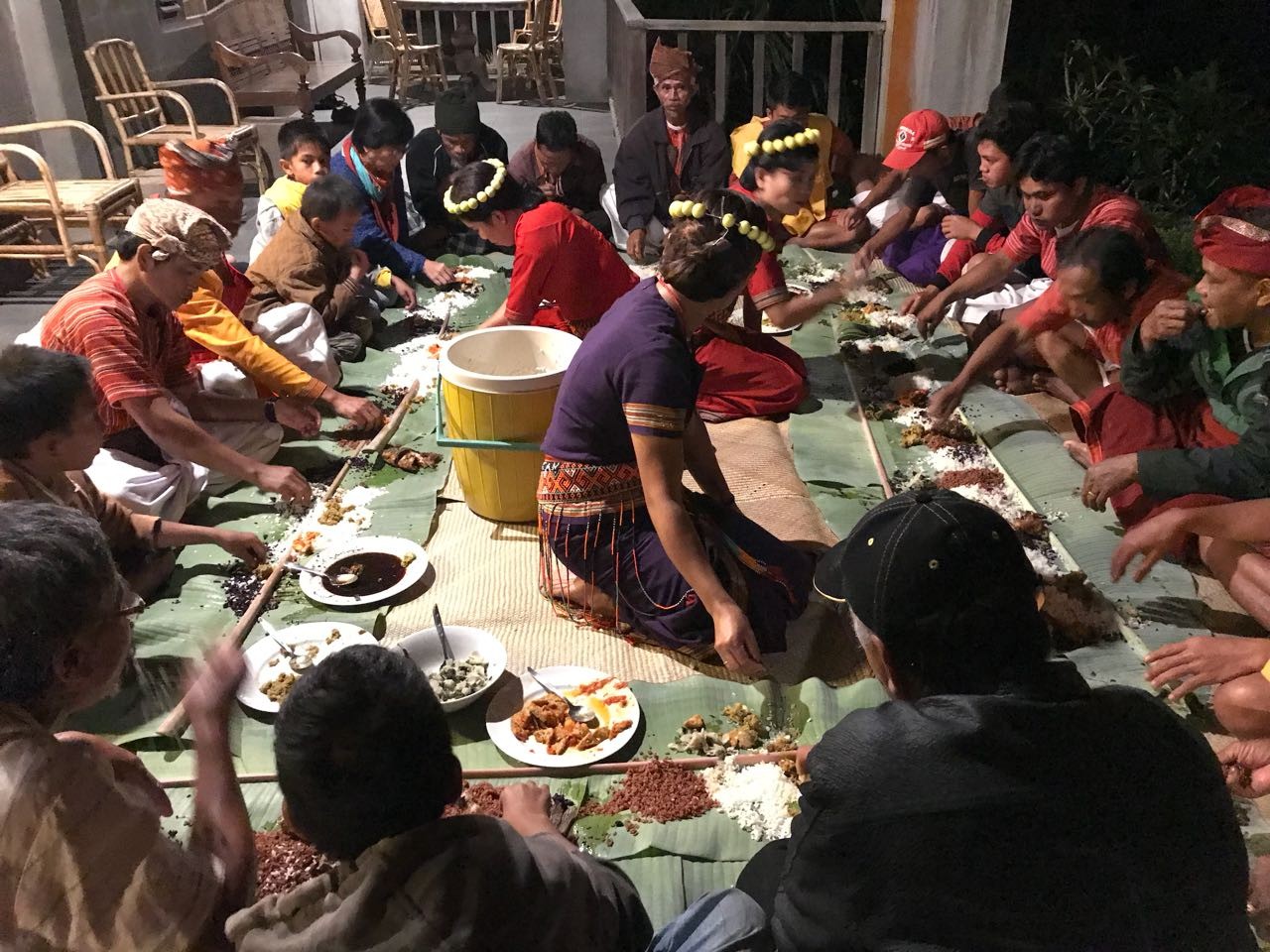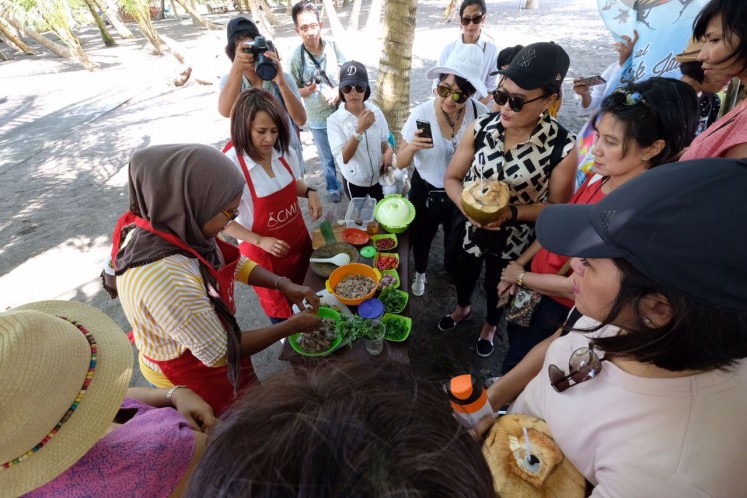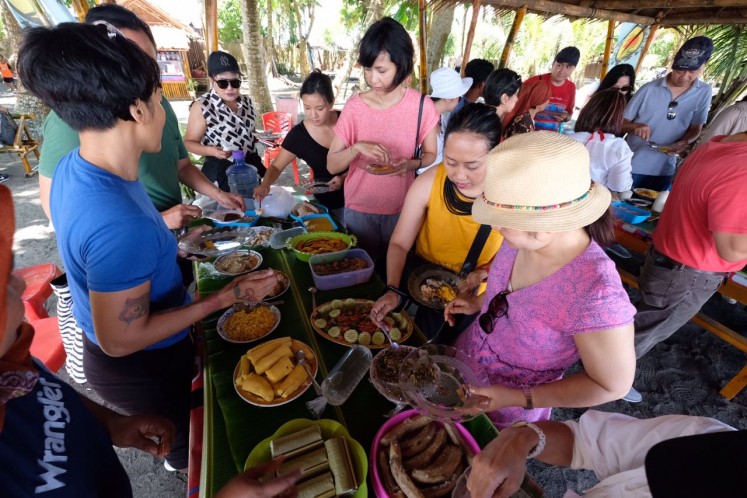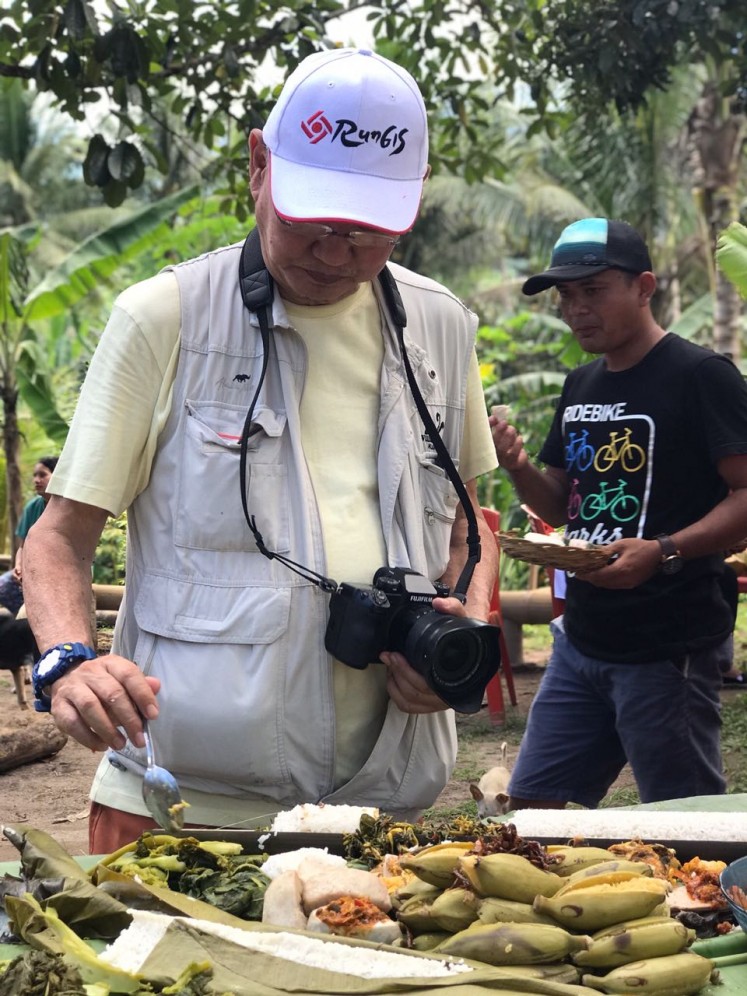Popular Reads
Top Results
Can't find what you're looking for?
View all search resultsPopular Reads
Top Results
Can't find what you're looking for?
View all search resultsFood tourism rises as new trend in travel
Culinary adventures have become a popular form of travel, with cuisine becoming a major reason behind people's decisions to visit new destinations.
Change text size
Gift Premium Articles
to Anyone
T
raveling these days is done in a very different way compared to a few years ago. Travelers are more willing to indulge in authentic local food, instead of looking for international chain restaurants they are already familiar with.
A significant part of travel itineraries is also dedicated to culinary exploration, instead of visits to overexposed landmarks and shopping sprees. In different cases, culinary exploration becomes the main theme of traveling, meaning people choose a certain destination for its culinary attraction.
Undoubtedly, social media has played an important part in the rise of this trend, as millions of food photos circulate around many different platforms every second.
However, it takes a village to ensure that a culinary tour runs successfully. If you think it’s easy to compile a list of eateries to visit from social media feeds, can you be sure that you are taking from sources that have the authority to curate?
Culinary expert William Wongso said in a press gathering with travel concierge Pelangi Benua that organizing food tours needed to be done by intellectuals, as there were many complicated details to go through.
“This is not a [type of] tour like, let’s go eat together in Bogor [for instance], because there are so many things to be studied and curated. The coordination, it is a lot of work. There has to be an advance team, a survey team, who then decides what to do with the findings, like what to do if the menu is too repetitive…,” said Wiliam.
Pelangi Benua, labeling itself a travel concierge, is among a few tour operators that offer tailor made culinary tours, taking discerning foodies to Indonesian destinations such as the town of Jailolo on Halmahera Island, North Maluku province.
Tour participants enjoy a hands-on cooking demo at Lako Akelamo village, a coastal area in Jailolo, West Halmahera, North Maluku. (JP/Handout/Pelangi Benua)Beby Vinny Mulyadi, CEO of Pelangi Benua, said that in 2018, her company explored culinary destinations in Indonesia in collaboration with William Wongso and the Aku Cinta Makanan Indonesia (I Love Indonesian Food/ACMI) movement.
“In Jailolo we explored the coastal area, [getting familiar] with coastal people's behavior, and on the next day we moved up to the [town’s] farming area, where there is another different community, and these differences shape the way they eat and what they eat.”
Fully aware that food is the key to becoming familiar with a new culture, the tour then conducted a communal dining experience with the local community, while other food and culture related activities included an excursion to a traditional market. Depending on the season and weather, tour participants are also given the chance to sample rare local ingredients like silkworm.
“We make the best effort to provide different food experiences, including hands-on cooking demos,” Beby went on to say, “That is why we collaborate with experts [like William Wongso and ACMI].”
When Pelangi Benua conducted a culinary tour to Tana Toraja regency in South Sulawesi earlier this year, the collaboration added value to the tour participants and local community alike.
William Wongso pointed out that Toraja had a small repertoire of dishes.
“In two days, from morning to night, we were served the same menu [in Toraja]. There was always dangkot (meat and poultry seasoned with turmeric, pepper and chili), papiong (vegetables, meat and fish stuffed into bamboo stems and grilled) and pamarrasan (black nut-based soup eaten with eel and fish),” said William.
The culinary expert arrived a few days earlier in Toraja, to help the locals develop their cooking.
“I don’t teach them to change the way they cook, but to maintain what is already in their tradition and [develop] variety in cooking [methods] and spices. One thing I found, they don’t have [fresh] coconut milk, as there are no coconuts. But there is packed coconut milk sold in the market, so I teach them to cook papiong and buffalo meat with coconut milk, just like cooking rendang,” William told the press.
Culinary expert William Wongso samples food at Ngaon village, a farmland area in Jailolo, West Halmahera, North Maluku. (JP/Handout/Pelangi Benua)In the process, a different method for cooking rendang was developed, with the meat going through a tenderization process inside bamboo stems.
The Toraja residents who were taught to cook rendang are said to have really appreciated the knowledge transfer. Cultural events in Toraja usually present them with so much buffalo meat that eventually it is wasted because they run out of ideas for how to cook the meat. Now they know new ways to cook and preserve the meat.
Read also: Why beef rendang is the right food to send to natural disaster victims
William also taught the Toraja residents how to create new dishes, for instance ayam lodo (spicy chicken) using super spicy katokkon chili, a native ingredient in the area. The culinary tour, therefore, does not change tradition but gives an addition to the food vocabulary that can then be presented to visitors.
Santhi Serad, chief of ACMI who also hosted the press conference, told another story of their culinary exploration to Larantuka district in East Flores regency, East Nusa Tenggara.
“The fish [in Larantuka] are fresh, ‘they only die once’ [meaning the fish are cooked quickly after being caught]. But people in Larantuka need to be taught different ways to cook, and we also teach them to cook rendang. They only know that rendang must be made of beef and that is it. Meanwhile they have pork and chicken, that they can use to make rendang. It is our job to discover what ingredients are available in one area, what herbs are there, and we have to share [cooking] knowledge with them,” said Santhi.
Food tourism is a lucrative business to explore in Indonesia, an archipelago with 17,000 islands and a huge variety of food. However, this volume of wealth brings yet another challenge to define the culinary identity of Indonesia as a whole, and how to achieve international recognition and make the country’s culinary wealth presentable on the world food map. Efforts toward this ideal situation are now being undertaken sporadically, with one example shown by Pelangi Benua, ACMI and William Wongso.
At the end of the day, the collaboration aims to sustain. This collaborative tour is also not limited to Indonesia alone, as it has ventured to India, opening possibilities for cultural exchange. And in spite of the complicated preparation and challenges, such as a lack of good infrastructure in some areas, Pelangi Benua is committed to making the tailor-made culinary tours regular, signaling that it has been a profitable business, while helping empower different communities.














